I was born awake and knowing and time keeps proving this:
men have reasons for breaking the rules. For me, thinking
has always been a logical process of if this, then that. I fit into
a chair. I sit in a room. I split in two—my body behaves but
my mind resists. It’s a simple truth that one can occupy two
places at one time while sitting in a chair—the same way a
poseable doll can be divided from her dress. It’s also true that
time will mesh us together. Until then, there’s another city on
the other side of this wall. A list listing reordered details might
read like this: light, glass, a metal stairway, one woman sitting
on the sill of a window, me in a chair. My feet on the floor,
face forward, arm bent, the very best of the body tucked into
place. But we are not dolls. We feel. We make mistakes.
A Numbered Graph That Shows How Each Part of the Body Would Fit Into A Chair
Mary Jo Bang
‘It’s a simple truth that one can occupy two / places at one time while sitting in a chair—the same way a / poseable doll can be divided from her dress.’
Granta 166: Generations Online
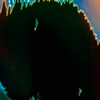
Generation Gap
‘We meet at various points in the great swathes of the past that neither of us were alive to witness.’
Allen Bratton on a daytrip to a castle with his older boyfriend.
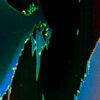
Generation Gap
‘Listening to three white poets, whom I suspect are academics, talk about the state of poetry.’
Oluwaseun Olayiwola eavesdrops on an older generation.
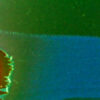
Generation Gap
‘I’d been dubious about his company at first.’
Sarah Moss on watching Shakespeare with her twelve-year-old son.
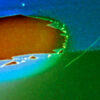
Generation Gap
‘She didn’t trust us because, to her, tenants were like children.’
Kate Zambreno on negotiating with her older landlady.
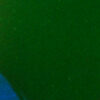
Generation Gap
‘A moment now swallowed in embarrassment, I asked a question only a young person might ask an older one.’
Lynne Tillman on trying to understand what makes a generation.
Mary Jo Bang
Mary Jo Bang is the author of seven books of poems and a translation of Dante's Inferno (with illustrations by Henrik Drescher). Her most recent collection is The Last Two Seconds. She is a Professor of English at Washington University in St. Louis, where she teaches in the Creative Writing Program.
More about the author →


